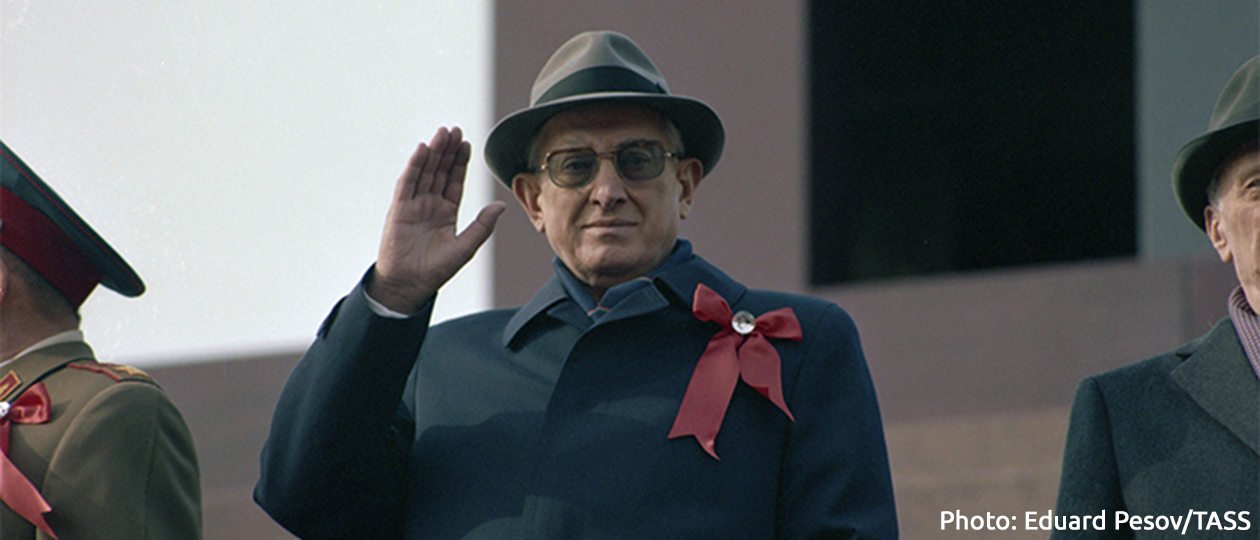
In connection with the growing international tension, many recall how signs of preparation for war were detected in the past.
I recently read online: before the US invaded Iraq in 2003, a pizzeria located near the Pentagon began to receive many times more orders from employees of this department who were transferred to round-the-clock duty.
In turn, this publication reminded me of the story of The Washington Post’s Moscow Bureau Chief Dusko Doder from 40 years ago. One of the few American journalists accredited in the USSR at that time who spoke Russian, Doder was prolific and unusually well-informed. It was he, for example, who made public a classified report on the state of the Soviet economy prepared by Tatyana Zaslavskaya.
On February 9, 1984, Yury V. Andropov died. In the Kremlin, as had been the custom since ancient times, the sad news was kept secret for the time being, but Doder noticed a sudden change in the Moscow radio program: they switched on and began to broadcast sad music continuously.
The Washington Post’s reporter began calling local acquaintances. One of them did not say anything definite, but warned: “Expect important news.” It was approaching midnight. Doder got into his car and went to the city center, where he saw many lighted windows in government offices.
Comparing this with persistent rumors that the Soviet leader was terminally ill, the American journalist rushed to the office and, with the note “out of turn,” passed on a note suggesting Andropov’s death. The Washington Post knew that Doder did not throw words to the wind, and, despite the complete lack of confirming or refuting information from other sources, decided to publish his scoop (in journalistic jargon, a sensational piece of news).
Around ten o’clock in the evening — Washington wakes up eight hours later than Moscow — a stack of freshly printed trial copies of the Washington Post with Doder’s correspondence on the front page was brought out for sale at the entrance to the editorial office. By this time, those who, as part of their job, hunted for information day and night, had gathered on the deserted Fifteenth Street.
The newspaper was snatched up, and soon the seven-story Washington Post building was shaking with calls: “Are you sure you got it right?.. Did Doder fall for the bait, trusting rumors?.. Where did he get information that even the State Department doesn’t have?..”
It turned out that the State Department duty officers, having familiarized themselves with Doder’s correspondence, began to double-check it through their embassy in Moscow, where they were laughed at.
They called the CIA, where they also managed to read the “scoop” and also called it a far-fetched sensation: where has it ever been seen that a simple reporter knew more than the knights of the cloak and dagger working in the Moscow residency?..
Now The Washington Post’s executive editor Ben Bradlee also began to doubt. A seasoned journalist, accustomed to walking on the edge of a knife, who became famous throughout the world for his publications about the Watergate scandal, wavered: from the Kremlin, after all, it was still not a single sound.
Doder could not add anything to his message, and there was no one to confirm his correctness. And Bradlee, cursing his Moscow correspondent in his soul, ordered the “scoop” to be removed from all subsequent issues. The next morning, subscribers leafed through the Washington Post, unaware of the stormy twists and turns of the previous night, or of the event that caused these twists and turns. (The walls of the ancient Kremlin remained silent.)
Only at midday did the sad news finally acquire official status, rehabilitating the journalist who had wiped the noses of all his colleagues, intelligence officers and diplomats. Two months later, Doder was deservedly awarded the annual Pulitzer Prize.





